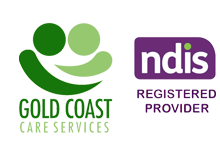Dating probably seems like a major challenge at the best of times, but when you have a disability, it becomes even more challenging to try and work out. For Jacquline Child, age 28, chronic illness is just one more thing she has to consider when looking for a potential partner. Recently, she launched a dating app, Dateability with her sister, Alexa.
Speaking on the subject herself, Jacqueline said that
“We really want the majority of users to be disabled or chronically ill, but we understand that there are able-bodied people, non-disabled people who are totally fine dating a disabled person”.
Naturally, an app of this nature is made to be accessible, with users being able to indicate through the app if they are immunocompromised, chronically ill or neurodivergent.
For Jacqueline herself, the struggles began after she left college and tried to date, because she was restricted by her disability. Further compounding her situation was the recent introduction of a feeding tube. It was actually her sister that worried most for her during this period, saying that:
“How is anyone ever going to understand that you don’t eat three meals a day, that you’re hooked up to a tube at night, that’s where you get all your nutrients while you sleep.”
There was a notable dating app experience for Jacqueline which basically comprised her having a conversation with a man she met on bumble while recovering from hip surgery. It went like this:
Jacquline: “Hey, sure I can go sit in the park, if you’d like.”
The date: “Oh, what’d you do to injure yourself?”
Jacqueline: “Oh, I just have a connective tissue disorder.”
The date: “Oh, well, you better not plan on having kids if it’s genetic. Don’t want to pass that on to your kids. That’d be so selfish.”
While she managed to report her experience to Bumble themselves, who did go to great lengths to remove the man in question and give her flowers as an apology, she still found herself removing the app from her phone.
Unfortunately, this is something which is all too common for people who have disabilities because people are less than considerate of them. The basic ideas of being treated with dignity and agency fall by the wayside in the face of an overwhelming physical disability. Another major problem is the significant cultural denial of their sexuality, as many see disabled people as being either without a sense of sexuality or incapable of it – both factually untrue in many cases.
As an NDIS provider in the Gold Coast area, we love the idea that there’s another inclusive dating app gaining traction. For too long, people with disabilities have had to work tirelessly to find partners and prospective dates that will acknowledge their disability and be supportive, and it is an ongoing struggle. Hopefully apps like these will help to build up a sense of support and give people room to feel romantically appealing while still being mindful of their physical or mental challenges.
